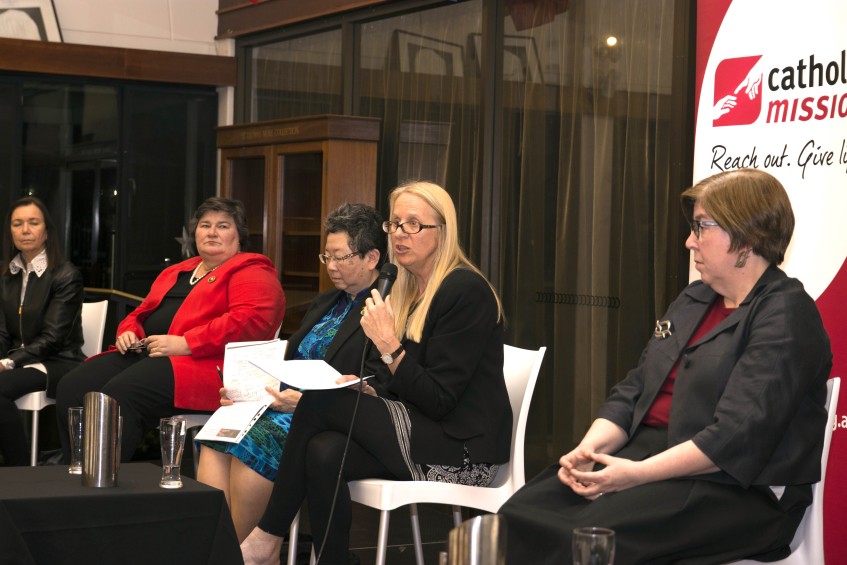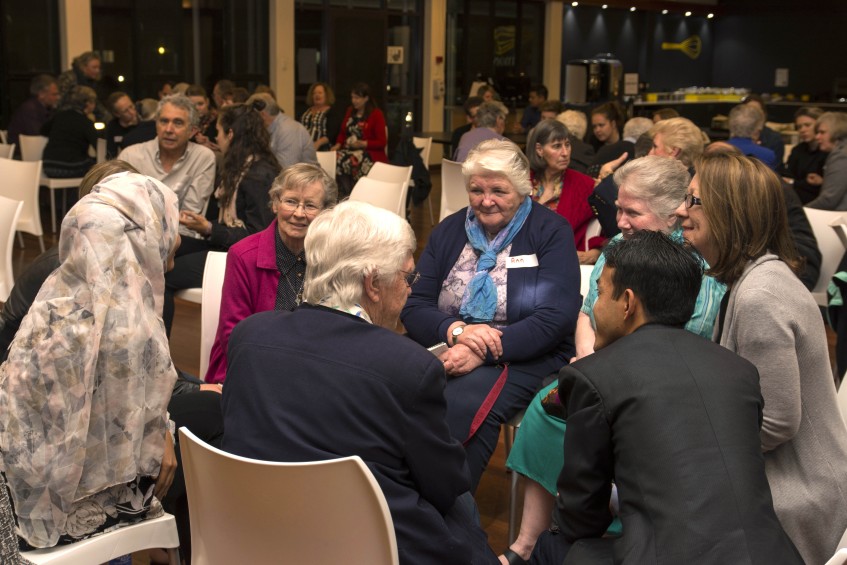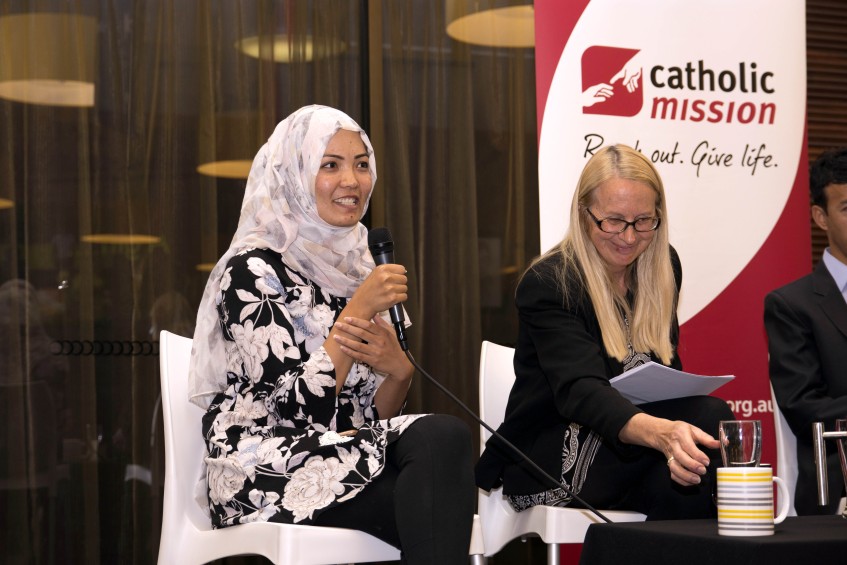Catholic Mission steps up campaign against human trafficking

Marya Stewart (centre) chairs a panel discussion featuring advocates against human trafficking at the second Is She Safe? gathering hosted by the Catholic Mission Perth Office. Photo: Rachel Curry
By Rachel Curry
The powerful message that every person can make a difference in the fight against human trafficking has inspired more than 70 attendees at the second Is She Safe? gathering hosted by the Catholic Mission Perth Office.
Held on Tuesday, 11 October to coincide with the International Day of the Girl-Child, the event at St Thomas More College brought together experts and everyday supporters to advocate against the trafficking of humans and recognise the life changing benefits of girl-child education.
According to Catholic Mission, human trafficking is the second biggest illegal enterprise in the world, after the illegal arms trade, and Australia is a prime destination for people trafficked from countries such as India, Thailand, Korea, the Philippines and Malaysia.
These people – who are often poor and vulnerable – are trafficked for servitude, slavery, debt bondage and organ harvesting, through forced labour in many industries including the sex industry, building industry, hospitality industry and fishing industry, in private homes and through forced marriage.
The fight against this exploitative and abusive practice seems like a daunting task, but Sister Margaret Ng RSJ from the Josephite Counter-Trafficking Project told attendees at the event that they should not feel hopeless.

Attendees at the second Is She Safe? gathering hosted by the Catholic Mission Perth Office discuss human trafficking and how they can contribute to solutions. Photo: Rachel Curry
“The important thing is you can make a difference. There are other like-minded groups who are working on this issue – Australian Catholic Religious Against Trafficking (ACRATH) is one of them,” she said.
“We get together and talk about issues that we come across. I’ve visited detention centres and have found people who have been brought over to work in the vineyards. We are the ones on the ground who see that and can contact someone.”
Vanesa Ghigi, an Australian Red Cross worker who supports survivors of human trafficking, agreed with Sr Margaret’s sentiment. She urged attendees to remain alert in their everyday lives to possible instances of exploitation.
“If you ever come across a situation that doesn’t look quite right, go and ask the person if everything’s OK, because victims of trafficking are reliant on people like us in the community to get the help and support that they need,” Ms Ghigi said.
After hearing from advocates working in the field, attendees also had the chance to experience two very personal stories of how girls continue to be denied their right to an education.

Former UNICEF Youth Ambassador Rahila Haidary tells her story of being denied the right to an education while growing up under Taliban rule in Afghanistan. Photo: Rachel Curry
Former UNICEF Youth Ambassador Rahila Haidary described her experience of growing up under Taliban rule in Afghanistan and not being allowed to go to school.
“I always had that passion to stand up and go to school like my male cousins but I never understood why I was denied that right,” she said.
Ms Haidary recalled how one day she dressed up as a boy to go to school, but when the authorities found out, her life was threatened and she was forced to leave the country.
Darwood Qualandri also told his story of being an unaccompanied child refugee who arrived by boat to Australia, before attending Aranmore College and Curtin University.
Unfortunately, Mr Qualandri’s family have not been allowed to join him in Australia and he worries for the safety of his younger sisters in Pakistan, where educational institutions are often attacked.
“If you want to fix poverty and terrorism, you have to give a quality education to girls. Sadly, today two thirds of the (global) illiterate population are women,” he said.
“I’m really happy that most people around the world are talking about girls’ education and they are taking it very seriously.”
